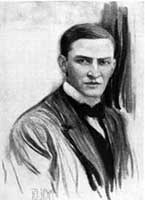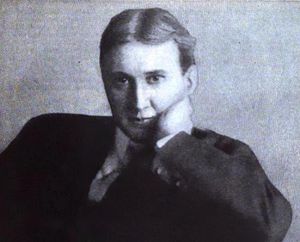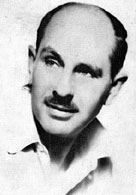
Amy K. Levin
Born: New Delhi, India
Pen Name: None Connection to Illinois: Professor Levin has lived in Illinois since 1995, first in DeKalb and now in DuPage County. Biography: Amy K. Levin is Director of Women's Studies, and Professor of English. She has taught classes in Woman's Studies, Aftican-American Literature, and British Literature.
Awards:
Website: http://www.niu.edu/wstudies/staff/alevin.shtml
Amy K. Levin on WorldCat : http://www.worldcat.org/search?q=amy+k.+levin
Selected Titles
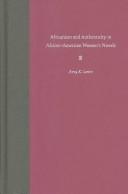 |
Africanism and authenticity in African-American women's novels / ISBN: 0813026318 OCLC: 85824624 University Press of Florida, Gainesville : ©2003. ''A groundbreaking work that links the lives and culture of African-American women to those of their African sisters. ... Levin completes the circle of these women's lives and histories by tracing their experiences from Africa to America and back. |
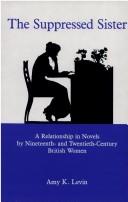 |
The suppressed sister : ISBN: 083875211X OCLC: 25747288 Bucknell University Press ; Lewisburg [Pa.] : ©1992. "Contentious behavior among biological sisters frequently contradicts ideals of sisterhood in novels by women. Additionally, feminist criticism, focusing on almost every imaginable relationship involving women, has all but ignored sisters. Amy K. Levin's The Suppressed Sister studies these circumstances, their causes and consequences. How and why is the sister bond suppressed in favor of sisterhood?"--BOOK JACKET. "Answers to this question may be found in female psychology, social expectations, and patriarchal myths and stories. The tales of Cinderella and Psyche are paradigmatic, providing models of female competition and inscribing a conclusion that replaces sisterly closeness with heterosexual romance."--BOOK JACKET. "Jane Austen's sister plot is based on these models. Her characters divide into pairs and adopt complementary personalities, but polarization does not erase competition; instead, marriage erects social and economic barriers which enforce role divisions."--BOOK JACKET. "In Wives and Daughters, Cranford, and The Life of Charlotte Bronte, Elizabeth Gaskell shows the danger of too close an attachment to the paternal home. She, too, emphasizes differences, revealing how they ultimately lead siblings to seek a sisterhood outside the family."--BOOK JACKET. "In Mill on the Floss, Middlemarch, and Daniel Deronda, George Eliot paints increasingly negative portraits of sisters, indicating that female siblings create differences where few or none exist. These denials of similarity heighten the heroines' isolation."--BOOK JACKET. "Twentieth-century novelists, including Barbara Pym, Elizabeth Jane Howard, and Margaret Drabble, revise their predecessors' texts, drafting a plot "after" the father's. They reject rules governing female behavior and question the expectation that women must get along with one another."--BOOK JACKET. "Finally, Emma Tennant's Bad Sister, together with several recent American novels, abandons the conventions of the realistic novel, challenging the very concept of character. Tennant undermines all distinctions, including those that treat sisters as separate individuals and those that classify certain behaviors as "good" or "bad.""--BOOK JACKET. "These novels show a progression that has been ignored or suppressed by feminist critics, many of whom long for an idyll of sisterhood inherited from nineteenth-century portraits of the "angel in the house." In denying anger or antagonism, women cut off a part of themselves, just as Cinderella's stepsisters amputate their toes to fit in her brittle glass slipper. Levin's book questions the rationale behind such self-destruction."--Jacket. |


